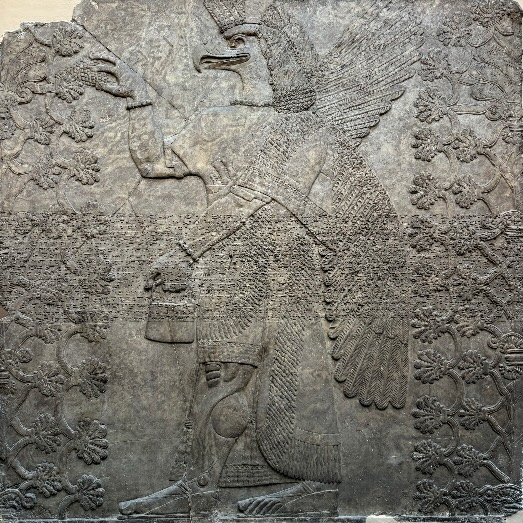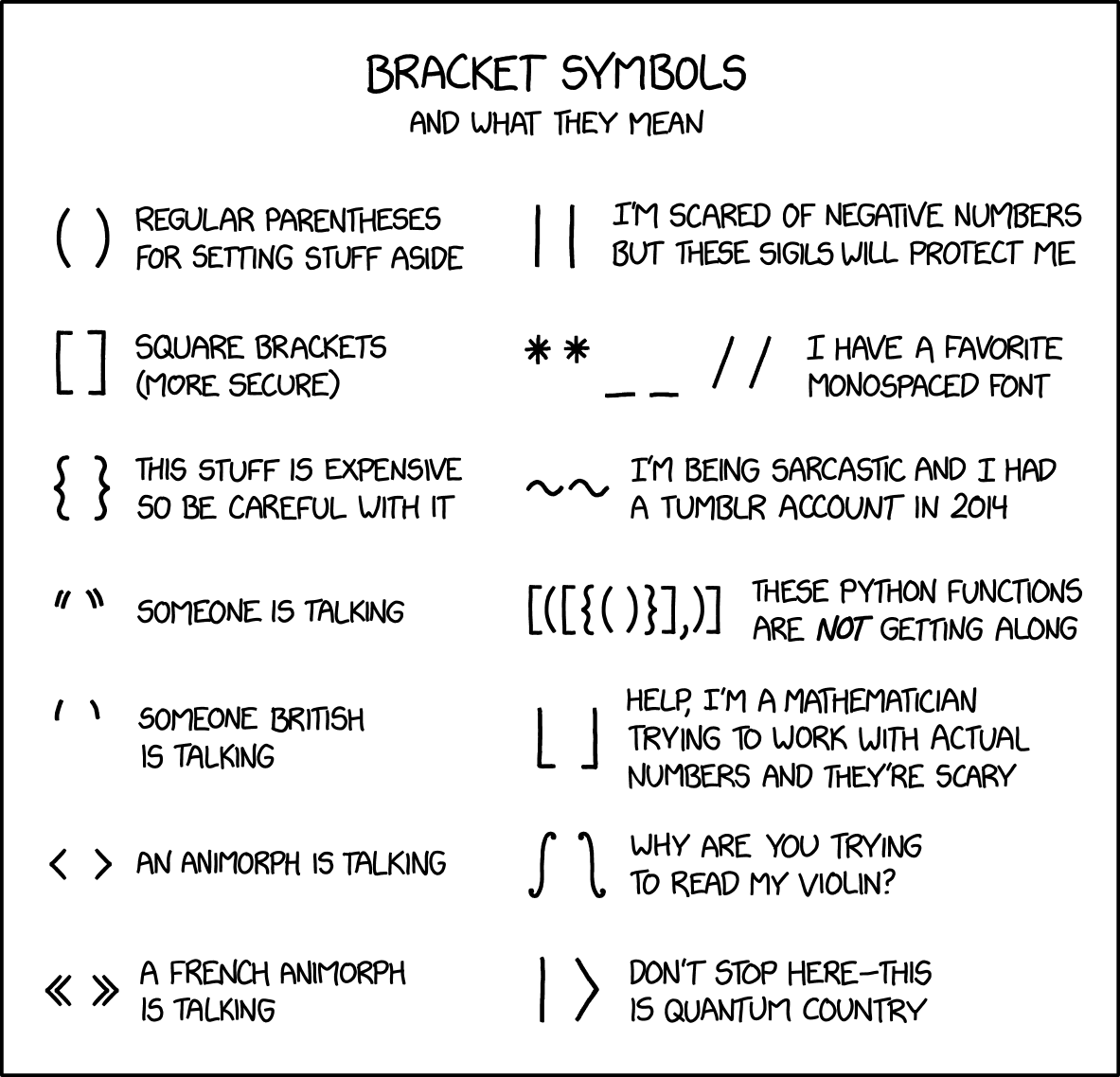Archive for July, 2024
Meme collision of the week
Lauren Jack ("Do you hurkle-durkle? What the Scottish word taking over social media means and where it came from", The Scotsman 1/24/2024) embeds a TikTok video from 7/18/2023:
@devriebrynnme my Scottish ancestors = just chillin’ as a culture♬ original sound – Devriebrynn
Read the rest of this entry »
Kanji brush writing on an iPad
The article is in Japanese, but you should be able to get an idea of what's going on from the videos and stills.
iPad書道はいいぞ pic.twitter.com/P4hregIAl1
— 書きちらし (@kakichirashi) June 29, 2024
Read the rest of this entry »
Are LLMs writing PubMed articles?
Kyle Orland, "The telltale words that could identify generative AI text", ars technica 7/1/2024
In a pre-print paper posted earlier this month, four researchers from Germany's University of Tubingen and Northwestern University said they were inspired by studies that measured the impact of the COVID-19 pandemic by looking at excess deaths compared to the recent past. By taking a similar look at "excess word usage" after LLM writing tools became widely available in late 2022, the researchers found that "the appearance of LLMs led to an abrupt increase in the frequency of certain style words" that was "unprecedented in both quality and quantity."
To measure these vocabulary changes, the researchers analyzed 14 million paper abstracts published on PubMed between 2010 and 2024, tracking the relative frequency of each word as it appeared across each year. They then compared the expected frequency of those words (based on the pre-2023 trendline) to the actual frequency of those words in abstracts from 2023 and 2024, when LLMs were in widespread use.
The results found a number of words that were extremely uncommon in these scientific abstracts before 2023 that suddenly surged in popularity after LLMs were introduced. The word "delves," for instance, shows up in 25 times as many 2024 papers as the pre-LLM trend would expect; words like "showcasing" and "underscores" increased in usage by nine times as well. Other previously common words became notably more common in post-LLM abstracts: the frequency of "potential" increased 4.1 percentage points; "findings" by 2.7 percentage points; and "crucial" by 2.6 percentage points, for instance.
Read the rest of this entry »
Text trumps art
On a visit to the British Museum last week, Zihan Guo spotted this captivating relief in the Assyrian collection. You may not be able to see it upon first glance, but she was especially transfixed by the inscription running midriff on the eagle-head figure:
Read the rest of this entry »
Bird, boy, girl, dog, recorder: etymology unknown
"Five common English words we don’t know the origins of – including ‘boy’ and ‘dog’", Francesco Perono Cacciafoco*, The Conversation (7/4/24)
[*See the author's extraordinary academic profile here.]
The author begins by describing the act of naming items in the world, the etymological study of words, the comparative method, the relationship of English to Germanic and thence to the Indo-European family, and how their vocabularies are all connected.
However, the process doesn’t always work. The English lexicon includes some terms known as “proper words”, which today apparently exist only in English. Cognates for them cannot be found in any other language.
These are very simple and common words but being unique, we cannot apply the comparative method to them and therefore cannot reconstruct their origins. These “proper words” represent an exciting puzzle of the English language. Here are five examples.
Read the rest of this entry »
The evolution of verbal interpolations
Philip Castle, "Quelles sont les expressions les plus utilisées dans la langue française courante?", Quora 6/20/2024:
On va commencer par voilà. O-bli-ga-toi-re ! Il faut parsemer votre discours de "voilà", sans trop vous préoccuper de leur place ni de leur utilité dans la phrase, bien au contraire. Exemple : "Je me suis dit que voilà ce serait bien de voilà faire des efforts pour voilà améliorer mon français". Il faut aussi garder à l'esprit que ce mot merveilleux peut tout remplacer, y compris une fin de phrase. Exemple entendu ce matin sur France Inter : "En fait, le SMIC à 1600 €, je suis patron alors voilà". Vous avez compris le principe, il n'est pas nécessaire de terminer votre phrase, votre interlocuteur la finira lui même en remplaçant le voilà par ce qu'il veut.
We'll start with "voilà". O-bli-ga-to-ry! You need to sprinkle your speech with (instances of) "voilà", without worrying much about their place or their use in the phrase, in fact the opposite. Example: "Je me suis dit que voilà ce serait bien de voilà faire des efforts pour voilà améliorer mon français". You also need to keep in mind that this marvelous word can replace anything, including the end of a phrase. An example heard this morning on France Inter: "En fait, le SMIC à 1600 €, je suis patron alors voilà". You've understood the principle, it's not necessary to end your phrase, your interlocutors will finish it for themselves, replacing the "voilà" with whatever they like.
Read the rest of this entry »
Script origin and typology, part 2
[This is a guest post by Peter T. Daniels, to follow part 1 (7/1/24)]
That, then, is my account of the origin of writing. It might be supposed that my next topic must be the origin of the alphabet. But it is not; for me, the origin of the alphabet is accidental and practically inevitable, given the constellation of circumstances surrounding the event.
No; what must be celebrated, if not explained, is the origin of the abjad. Previously, writers wrote sounds; subsequently, writers wrote parts of sounds. All the evidence in favor of the syllable as the basic unit of speech is also evidence against the likelihood of discovering the segment. The Egyptians didn’t discover the segment, even though they wrote only consonants and didn’t identify the vowels of the syllables of their language; as explained by Alfred Schmitt, Egyptian hieroglyphic signs never ceased to be word signs, even when used strictly for their phonetic value.
Read the rest of this entry »
Charon's obol
Sino-Platonic Papers is pleased to announce the publication of its three-hundred-and-fifty-first issue: "Placing Western Coins Near the Deceased in Ancient China: The Origin of a Custom," by Pin LYU:
ABSTRACT: This article traces the custom in ancient China of placing Western coins in proximity to corpses during burial. Academic attention has focused on the origin of the custom since Marc Aurel Stein initially connected the finding in Turfan of Western coins placed in the mouths or on the eyes of the corpses with Charon's obol, the ancient Greek coin that, similarly placed, paid Charon to ferry the dead to the underworld. Some scholars agreed with Stein's proposal, while others suggested that it was instead a traditional Chinese funerary ritual, unrelated to Greece. This article moves away from over-reliance on written sources and aims at uncovering the patterns underlying this custom, through the collection and analysis of available archaeological material. Results indicate that the custom possibly originated in the Hellenistic practice of Charon's obol and then traveled to China with Sogdian immigrants, developing into a regional funeral ritual in Turfan.
Read the rest of this entry »
Huaxia: pre-Han cognomen of the Middle Kingdom
Iskandar Ding and the Scythians are well known on Language Log. Now they come together in this reference to Christopher Beckwith's The Scythian Empire:
What an excitingly bold book! Finally got the paperback edition. pic.twitter.com/R7M11MCNQ2
— Iskandar Ding (@iskdin) July 1, 2024
[click on the illustration to go to the X post and then click again to embiggen the page so that it is easy to read]
Read the rest of this entry »
Tocharo-Sinica and Sogdo-Sinica
Exchange between VHM and Chris Button:
VHM:
I just heard a lecture on Tocharian by Gerd Carling, and she said that the word for "enter" in Toch. is something like "yip". That jerked me to the edge of my seat, since it is identical to the pronunciation of 入 ("enter") in many Sinitic topolects.
The verb is well grounded on the Tocharian side. This is from the etymological section of Doug Adams dictionary or Tocharian:
■TchA yäw– and B yäp– reflect PTch yäp– (though at least the preterite participle yaiwu in A shows the influence of B [VW:605]). PTch *yäp– is from PIE *yebh– ‘go, enter (into)’ seen in Hieroglyphic Luvian iba– ‘west’ (for a discussion of the latter word, and different conclusions, see Puhvel, 1984:375-377) < *ibho– and Greek zóphos ‘dusk, gloom, (north)west,’ and Greek zéphuros ‘(north)west [wind]’ (< *yobh– and *yebh– respectively). For the semantic development of Hieroglyphic Luvian iba– one should compare Greek dúsis ‘west’ from dúō ‘get, get into’ and the TchB kauṃ yäp– ‘set [of sun]’). The Tocharian and Hittite words are to be connected with *yebh– ‘futuere’ [: Greek oíphō (< *o– + ibh-), Sanskrit yábhati, OCS jebǫ (P:298; 508)], the meaning ‘futuere’ coming from ‘penetrate’ (Winter, 1998:349; cf. Beekes, 2010:1063-1064). The connection with yábhati is VW’s (1941) but later (1976:605) he suggests a phonetically impossible development from a PIE *(e)ieu-. Malzahn (2017:283-284) adds, on the basis of Cheung, 2007:213, an Iranian cognate *ya(m)p/b-‘move, wander, rove, crawl’ and takes the antecedent Proto-Indo-European to have meant ‘go, move (slowly) inside.’
Read the rest of this entry »
Malapropism of the week
Kevin Drum, "Federal judge uses very strange words to overturn LNG pause", jabberwocking 7/2/2024:
Early this year the Department of Energy paused approvals of new LNG terminals. Several states sued, saying the decision was arbitrary and was costing them a lot of money.
Yesterday a Trump-appointed judge in Louisiana (of course) issued a preliminary injunction against the pause and told DOE to start issuing approvals again. […]
I want to highlight a couple of passages from judge James Cain's opinion:
The Defendants’ choice to halt permits to export natural gas to foreign companies is quite complexing to this Court…. [It] is completely without reason or logic and is perhaps the epiphany of ideocracy.
Read the rest of this entry »

